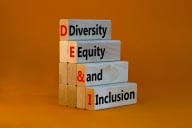You have /5 articles left.
Sign up for a free account or log in.
RawPixel
It was a Monday in April, and everyone followed the script. Conservative commentator Ben Shapiro gave a speech at the University of North Carolina at Greensboro. The event’s clickbait title—“Men Cannot Become Women”—left little doubt about Shapiro’s intent to stir up controversy. He succeeded. News coverage had all the familiar trappings: the efforts to disband the club that organized the event; university administrators’ carefully worded statement about free speech; the counterprogramming; and the student protesters’ midspeech interruptions.
This ritual has played out countless times at universities across the country, reinforcing an image of college students as closed-minded, fragile and hopelessly divided by political tribalism. That image is wrong. Students want to hear diverse and dissenting viewpoints on campus, but they feel put off and sometimes intimidated by the strong partisans who dominate political discussions.
We know this because over the past year, we surveyed more than 3,400 students at eight public universities in North Carolina, including UNC Greensboro, in an effort to get beneath the tired tropes of campus speech controversies. Our study and the recently released report were led by a politically diverse team of faculty researchers, allowing us to avoid the polarity that has hampered research efforts in states like Florida and Wisconsin. We wanted to do more than simply highlight potential problems. We wanted to start a reality-based discussion about how higher education can meet its obligations to democracy.
Students’ desire for constructive engagement across political divides is strong. Take UNC Greensboro for example. A majority of UNC Greensboro students indicated that there are too few opportunities “to engage constructively with people who disagree with them.” Moreover, although the student body clearly leans to the left (self-described liberals outnumber self-described conservatives by about five to one), more students (42 percent) thought there were too few opportunities to hear conservative speakers than too few opportunities to hear liberal speakers (28 percent).
Further, while shout-down culture is real, it arises from a minority of students. Only 18 percent of UNC Greensboro students indicated it was appropriate to obstruct a campus speaker espousing views the students found objectionable.
Similar patterns emerged at all eight universities we studied. Students—at least a healthy majority of them—want genuine cross-ideological engagement. So how can universities provide it?
Our research suggests that some of the more prominent efforts at reform, like focusing on classroom “indoctrination” and the role of professors in shaping political beliefs, are misguided. It’s true that students who identify as conservative express more concern about expressing their sincere opinions in class than their liberal or moderate counterparts. But faculty members do not appear to be the main source of these concerns. In our survey, even among students who identify as conservative, the vast majority agreed that faculty “encouraged participation from liberals and conservatives alike.”
So if it’s not the professors who are chilling political debate, who is? Students themselves. We found extensive evidence that students worry about social consequences among their classmates much more than any blowback from professors or administrators. Across universities, students—especially those who identify as conservative—expressed concerns about being ostracized if they expressed their sincere views. Their concerns might be well-placed: students who identify as liberal outnumbered those who identify as conservative at all our campuses, and more than 30 percent of these self-described liberals indicated that they would not be willing to have a conservative student as a close friend.
What we have on most campuses, then, is an atmosphere where students want thoughtful political debate but are hesitant to engage. We examined the profile of students who are most politically engaged and found that those students were less willing to consider other perspectives and more likely to harbor negative stereotypes about people who disagree with them politically. This pattern is natural, but it likely makes political engagement less appealing for the students who aren’t confident partisans—those who are curious about politics, but whose opinions are more tentative.
We see a clear need to support programs that build trust among peers and make room for political curiosity. When students have developed a rapport with each other, statements that otherwise might cause offense can be clarified, walked back or contextualized within an established relationship. UNC’s Agora Fellows program, which invites politically diverse students to meet regularly with a mentor to discuss current events, is a good example of such trust building. Much more work needs to happen to scale those interactions across an entire campus.
Our findings also suggest universities need to do more to make students aware of the many forms of diversity that surround them. One pattern we noticed in our results is that people created divides by making wrong assumptions about the people around them. For instance, one respondent’s peers assumed that she would favor social justice policies, since she is an immigrant. In fact, she felt similar policies failed in her country of origin. Another respondent felt that astrology and tarot reading were openly mocked, though she thought these practices were just as credible as any religion’s. In these moments and others, we suspect the slight arose from a lack of awareness rather than ill intent. Still, their accumulated effect can close opportunities for engagement.
Universities face real challenges in building a culture of constructive dialogue. But the appetite is there, if faculty members and administrators can create the right environment. It falls to educators, administrators and the students themselves to make sure campuses remain a space for open-ended curiosity and encountering new ideas.








